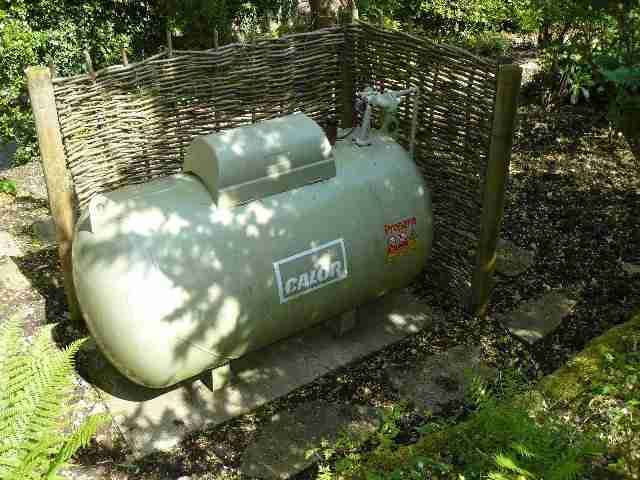a) Fixed cylinder installations - If you have one or
more cylinders fixed in position for connection to an appliance, the installer
must ensure that they are located in a safe place and have all the necessary
safety devices to protect the hoses, pipework and appliances attached to them.
However you need to look after the installation. In particular you should: -
ensure the cylinders are kept secured in position and are not tampered with. -
if you have a maintenance contract (with the LPG supplier or other reputable
company) make sure they come at the specified intervals, and that any work
required is done. If the equipment is leased, make sure the owner keeps to the
lease terms regarding maintenance. Keep all the paperwork relating to the
installation for reference. - don't let anyone work on the installation unless
they are suitably trained and competent to do the work. - read the operating
instructions, and the emergency actions, and ensure that everyone who needs to
knows them and follows them carefully. - don't do any modifications which may
affect the safety of the installation, such as altering fire walls, or erecting
sheds or fences or installing electrical equipment near the cylinders. If in
doubt, ask your LPG supplier for advice. - make sure that "No Smoking" signs and
any other safety notices are maintained.
b) Cylinders not fixed in position - keep all cylinders
in a safe, well-ventilated place, preferably in the open air, and away from
occupied buildings, boundaries and sources of ignition and of heat. Make sure
the cylinders are properly secured and are kept upright.
c) In all cases: - keep rubbish and anything combustible
well away, and keep weeds and grass in the vicinity cut down. Don't use
chlorate-based weedkiller, as it can be a fire hazard. - don't let anyone have
any electrical equipment, vehicles, bonfires, barbecues or other sources of
ignition near the cylinders. Exceptions are items purpose-designed to use LPG,
such as gas-fired barbecues. Do not smoke when changing cylinders. - keep people
not involved with the installation well away from it, particularly children. -
keep vehicles well away from the installation. - make sure that the pipework or
flexible hose from the cylinders to the point of use is protected against
accidental damage and is properly supported. For underground piping, make sure
you know the route it takes, and avoid putting anything in the ground which may
damage the pipework. - report any equipment failure or damage to your supplier
without delay, and ask them for advice about what you should do. Deliveries If
you have cylinders delivered, make sure you order the right number and type of
replacements. Don't order more than you need, as you may not have space to keep
them safely. On the delivery day, make sure the parking area is clear for the
delivery vehicle. Keep away from the vehicle while the cylinders are being
handled. Return of Cylinders Local LPG suppliers and dealers can be found in the
Yellow Pages under Bottled Gas or Gas Bottles or Gas Suppliers. LPG cylinders
remain the property of the gas company and are refilled by exchange.
IF A CYLINDER IS NO LONGER NEEDED IT SHOULD BE RETURNED
TO A LOCAL DEALER OF THE COMPANY OWNING THE CYLINDER.
 As a home owner you have a responsibility to yourself
and the residents in your home to ensure that your gas fittings and appliances
are safe. It is very important that gas appliances are installed and regularly
checked for safety by a Gas Safe Register engineer. It is recommended that you
arrange safety checks on an annual basis.
As a home owner you have a responsibility to yourself
and the residents in your home to ensure that your gas fittings and appliances
are safe. It is very important that gas appliances are installed and regularly
checked for safety by a Gas Safe Register engineer. It is recommended that you
arrange safety checks on an annual basis.  The Gas Safe Register
The Gas Safe Register
 Liquefied Petroleum Gas Association
Liquefied Petroleum Gas Association